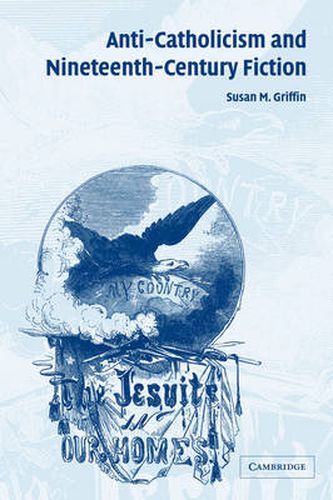Readings Newsletter
Become a Readings Member to make your shopping experience even easier.
Sign in or sign up for free!
You’re not far away from qualifying for FREE standard shipping within Australia
You’ve qualified for FREE standard shipping within Australia
The cart is loading…






Susan Griffin uncovers and analyzes the important but neglected body of anti-Catholic fiction written between the 1830s and the turn of the century in both Britain and America. Griffin examines Anglo-American anti-Catholicism and reveals how this sentiment provided Victorians with a set of political, cultural and literary tropes through which they defined themselves as Protestant and therefore normative. She draws on a broad range of writing including works by Harriet Beecher Stowe, Charles Kingsley, Henry James, Charlotte Bronte and a range of lesser-know writers. Griffin traces how nineteenth-century writers constructed a Church of Rome against which ‘America’, ‘Britain’ and ‘Protestant’ might be identified and critiqued. This book will be essential reading for scholars working on British Victorian literature as well as nineteenth-century American literature; it will be of interest to scholars of literary, cultural and religious studies.
$9.00 standard shipping within Australia
FREE standard shipping within Australia for orders over $100.00
Express & International shipping calculated at checkout
Susan Griffin uncovers and analyzes the important but neglected body of anti-Catholic fiction written between the 1830s and the turn of the century in both Britain and America. Griffin examines Anglo-American anti-Catholicism and reveals how this sentiment provided Victorians with a set of political, cultural and literary tropes through which they defined themselves as Protestant and therefore normative. She draws on a broad range of writing including works by Harriet Beecher Stowe, Charles Kingsley, Henry James, Charlotte Bronte and a range of lesser-know writers. Griffin traces how nineteenth-century writers constructed a Church of Rome against which ‘America’, ‘Britain’ and ‘Protestant’ might be identified and critiqued. This book will be essential reading for scholars working on British Victorian literature as well as nineteenth-century American literature; it will be of interest to scholars of literary, cultural and religious studies.